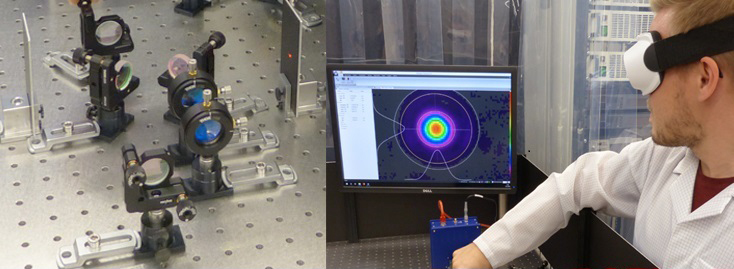Professorship Optronics
The Chair of Optronics research activities focus on strategic and innovative technologies and components in optronics and laser technology.
With research priorities in the area of specific laser sources for optronic systems and metrology, as well as the close networking of research activities with the Fraunhofer IOSB, we investigate and enable strategic and innovative technologies and components of optronics and laser technology.
Such laser sources and systems address a particularly broad spectrum of applications that will become increasingly important in the future, from telecommunications, medicine, biotechnology, environmental analysis and metrology to security.
A large part of the research takes place in intensive collaboration with the Fraunhofer Institute for Optronics, System Technologies and Image Exploitation (IOSB), whereby fundamental and application-oriented research is performed in an coherent research concept.
The research is accompanied by two lectures, which are specifically adapted to the necessary fundamentals and special knowledge of the research activities named above:
- Laser Physics + exercises in the winter term in English (3 SWS
- Basics of Laser physics
- Mathematical description of lasers
- Laser resonators: basics and specific geometries
- Laser pulse generation and applications
- Practical examples: HeNe, Nd3+, Tm3+, Ho3+, fiber laser, ...
- Non-linear effects (Raman, Brillouin)
- Laser Metrology in the summer term in English (2 SWS)
- Beam propagation and beam shaping
- Basics of laser diagnostics (coherence, mode structure, metrological Information)
- Beam diagnostics, electro-optical sensors, limitation
- Laser measurement methods (interferometry, distance, speed, gated viewing, LIDAR, material properties, ...)
Both lectures are structured in such a way that the entry can be chosen independently of one another. In addition, the lecture content and especially selected examples are always adapted to current research and problems from today's and future applications.
Contact: Prof. Marc Eichhorn


